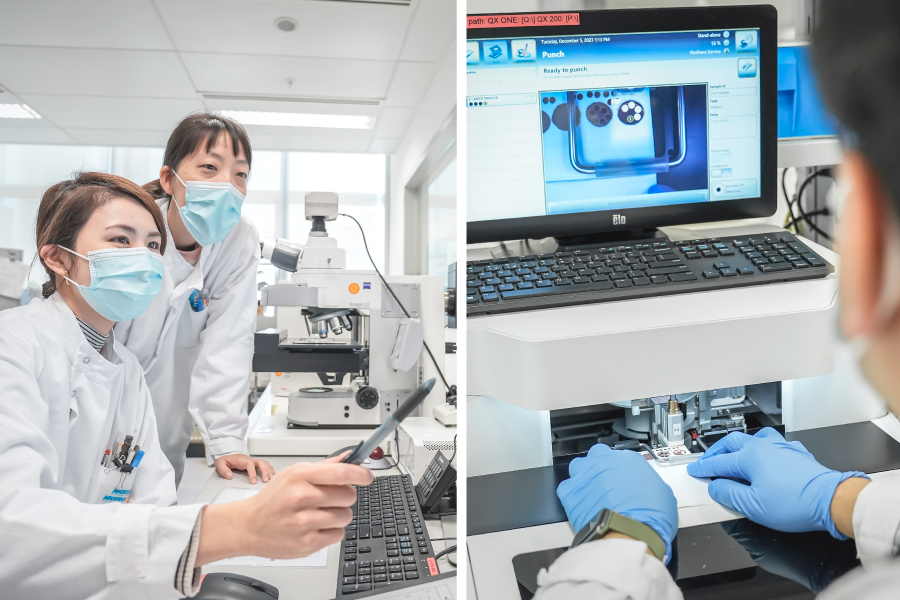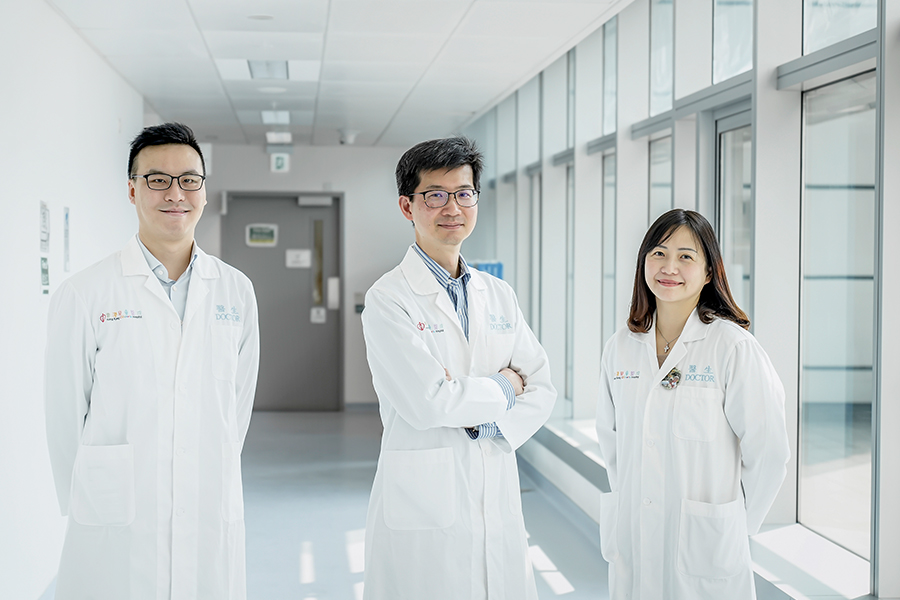Genetic testing for inherited diseases
 The Newborn Screening Laboratory and the Genetic & Genomic Pathology Laboratory commenced services in the Department of Pathology of HKCH in 2018 and 2019 respectively. In 2023, the clinical genetic laboratory services of the Department of Health were also transferred to the Department. Manpower was increased in the Department and advanced equipment was installed to allow for a smooth transfer. The Department’s Chief of Service Dr Jason So says genetic testing is vital for patients and families. Doctors are now able to obtain early diagnosis and draw up treatment plans through an expanded scope of genetic testing.
The Newborn Screening Laboratory and the Genetic & Genomic Pathology Laboratory commenced services in the Department of Pathology of HKCH in 2018 and 2019 respectively. In 2023, the clinical genetic laboratory services of the Department of Health were also transferred to the Department. Manpower was increased in the Department and advanced equipment was installed to allow for a smooth transfer. The Department’s Chief of Service Dr Jason So says genetic testing is vital for patients and families. Doctors are now able to obtain early diagnosis and draw up treatment plans through an expanded scope of genetic testing.
Consultant Dr Chloe Mak explains that genetic testing takes place in three scenarios. The most common is diagnostic, when doctors suspect a patient has a genetic disease because of their symptoms. The second scenario is predictive, when subjects have a family history of genetic disease or are taking drugs that may need pharmacogenetic data for risk assessment and dosage adjustment. The third is screening, especially for newborns, during which babies are given pre-symptomatic testing to check for potentially serious and even life-threatening conditions.
Can all diseases be diagnosed through genetic testing? Consultant Dr Timothy Cheng points out that diseases can arise from a combination of genetic factors and environmental factors. Genetic testing cannot fully explain all the conditions that we encounter. As whole genome sequencing becomes more common, and as our understanding of the human genome improves, we may have a better understanding of the links between genetic variants and different diseases.

Increasing scope of newborn screening
The Newborn Screening Laboratory of HKCH screens all newborn babies delivered in public hospitals for glucose-6-phosphate dehydrogenase (G6PD) deficiency and congenital hypothyroidism as well as for 26 metabolism defects, severe combined immune deficiency, and spinal muscular atrophy (pilot). Dr Mak hopes more conditions will be included in future newborn screening to make the programme even more comprehensive.Interview video